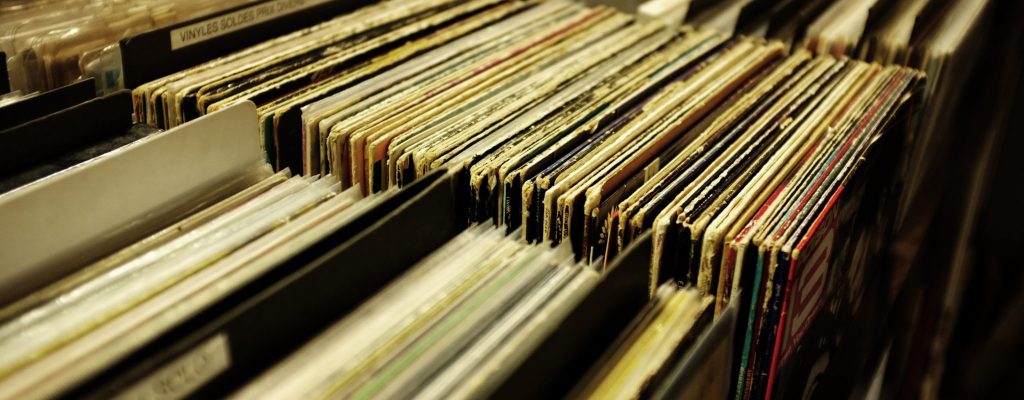Altered Crate-Digging Politics

A resurgence of vinyl records is still small when compared to other technologies. (photo/F. Barral)
Forty-Five Funk Staff
December 10, 2021.
Updated January 7, 2025.
The popularity of Hip Hop music, namely DJing and Turntablism, has had a tremendous impact on record collecting and the politics that surround sampling. Vinyl record collecting exists in the same realm that many other hobbyist-inspired pastimes do. Postage stamps, comic books, vintage action-figures, baseball cards, and an endless number of other collectibles are coveted with the same enthusiasm as vinyl records are.
The technique of sampling was integral to early Hip Hop culture, which is now considered Popular (Pop) music. Go back in history and recognize Brooklyn record producer Richard “Dickie” Goodman, who in 1956, invented a technique called the ‘break-in.’ The book, The King of Novelty, by Jon Goodman, explains the story of how the ‘break-in’ was arguably the first case of actual music sampling. The result was, “The Flying Saucers Parts I & II,” which were a rewrite of an Orson Welles’, War of the Worlds, radio program broadcast that was first broadcast on October 30, 1938. What does this have to do with vinyl records?
Look at the attention that Hip Hop paid to music sampling, and observe the legalities that currently surround the art form. Record executives and lawyers do more than just listen to sampled music. They push for legislative changes that affect the way art is regulated within the U.S. Court system. In particular, a 1991 U.S. District Court case — Grand Upright Music v. Warner Bros. Records, Inc., 780 F. Supp. 182 (S.D.N.Y. 1991), required that all samples placed on new recordings be cleared, no matter how small or insignificant they may seem to that particular recording. The discussion surrounding ‘why,’ this happened became a long one. Vinyl recordings are still in the middle of that conversation. A lot had changed since the days of Dickie Goodman and the “break in” style that he arguably invented.
The politics surrounding record sampling speak even louder to those who are directly involved in the music industry. The 2011 book, Creative License: The Law and Culture of Digital Sampling, by Kembrew McLeod, goes into depth about music sampling. Few legal exceptions exist for artists using past recordings to make new music, and the court case, Bridgeport Music, Inc. v. Dimension Films, 410 F.3d 792 (6th Cir. 2005) confirms that fact in a whole new way.
